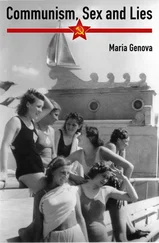She returned to the paper at her desk, still distracted, now by a craving for that fight she hadn't had with John about their younger daughter, Lydia. Would it kill him to stand behind her for once? She gave the rest of the paper a cursory effort, not her typical standard of excellence, but it would have to do, given her fragmented state of mind and lack of time. Her comments and suggestions for revision finished, she packaged and sealed the envelope, guiltily aware that she might've missed an error in the study's design or interpretation, cursing John for compromising the integrity of her work.
She repacked her suitcase, not even emptied yet from her last trip. She looked forward to traveling less in the coming months. There were only a handful of invited lectures penciled in her fall semester calendar, and she'd scheduled most of those on Fridays, a day she didn't teach. Like tomorrow. Tomorrow she would be the guest speaker to kick off Stanford's cognitive psychology fall colloquium series. And afterward, she'd see Lydia. She'd try not to battle with her, but she wasn't making any promises.
ALICE FOUND HER WAY EASILY to Stanford's Cordura Hall on the corner of Campus Drive West and Panama Drive. Its white stucco exterior, terra-cotta roof, and lush landscaping looked to her East Coast eyes more like a Caribbean beach resort than an academic building. She arrived quite early but ventured inside anyway, figuring she could use the extra time to sit in the quiet auditorium and look over her talk.
Much to her surprise, she walked into an already packed room. A zealous crowd surrounded and circled a buffet table, aggressively diving in for food like seagulls at a city beach. Before she could sneak in unnoticed, she noticed Josh, a former Harvard classmate and respected egomaniac, standing in her path, his legs planted firmly and a little too wide, as if he was ready to dive at her.
"All this, for me?" asked Alice, smiling playfully.
"What, we eat like this every day. It's for one of our developmental psychologists, he was tenured yesterday. So how's Harvard treating you?"
"Good."
"I can't believe you're still there after all these years. You ever get too bored over there, you should consider coming here."
"I'll let you know. How are things with you?"
"Fantastic. You should come by my office after the talk, see our latest modeling data. It'll really knock your socks off."
"Sorry, I can't, I have to catch a flight to L.A. right after this," she said, grateful to have a ready excuse.
"Oh, too bad. Last time I saw you I think was last year at the psychonomic conference. I unfortunately missed your presentation."
"Well, you'll get to hear a good portion of it today."
"Recycling your talks these days, huh?"
Before she could answer, Gordon Miller, head of the department and her new superhero, swooped in and saved her by asking Josh to help pass out the champagne. As at Harvard, a champagne toast was a tradition in the psychology department at Stanford for all faculty who reached the coveted career milestone of tenure. There weren't many trumpets that heralded the advancement from point to point in the career of a professor, but tenure was a big one, loud and clear.
When everyone was holding a cup, Gordon stood at the podium and tapped the microphone. "Can I have everyone's attention for a moment?"
Josh's excessively loud, punctuated laugh reverberated alone through the auditorium just before Gordon continued.
"Today, we congratulate Mark on receiving tenure. I'm sure he's thrilled to have this particular accomplishment behind him. Here's to the many exciting accomplishments still ahead. To Mark!"
"To Mark!"
Alice tapped her cup with her neighbors', and everyone quickly resumed the business of drinking, eating, and discussing. When all of the food had been claimed from the serving trays and the last drops of champagne emptied from the last bottle, Gordon took the floor once again.
"If everyone would take a seat, we can begin today's talk."
He waited a few moments for the crowd of about seventy-five to settle and quiet down.
"Today, I have the honor of introducing you to our first colloquium speaker of the year. Dr. Alice Howland is the eminent William James Professor of Psychology at Harvard University. Over the last twenty-five years, her distinguished career has produced many of the flagship touchstones in psycholinguistics. She pioneered and continues to lead an interdisciplinary and integrated approach to the study of the mechanisms of language. We are privileged to have her here today to talk to us about the conceptual and neural organization of language."
Alice switched places with Gordon and looked out at her audience looking at her. As she waited for the applause to subside, she thought of the statistic that said people feared public speaking more than they feared death. She loved it. She enjoyed all of the concatenated moments of presenting in front of a listening audience--teaching, performing, telling a story, teeing up a heated debate. She also loved the adrenaline rush. The bigger the stakes, the more sophisticated or hostile the audience, the more the whole experience thrilled her. John was an excellent teacher, but public speaking often pained and terrified him, and he marveled at Alice's verve for it. He probably didn't prefer death, but spiders and snakes, sure.
"Thank you, Gordon. Today, I'm going to talk about some of the mental processes that underlie the acquisition, organization, and use of language."
Alice had given the guts of this particular talk innumerable times, but she wouldn't call it recycling. The crux of the talk did focus on the main tenets of linguistics, many of which she'd discovered, and she'd been using a number of the same slides for years. But she felt proud, and not ashamed or lazy, that this part of her talk, these discoveries of hers, continued to hold true, withstanding the test of time. Her contributions mattered and propelled future discovery. Plus, she certainly included those future discoveries.
She talked without needing to look down at her notes, relaxed and animated, the words effortless. Then, about forty minutes into the fifty-minute presentation, she became suddenly stuck.
"The data reveal that irregular verbs require access to the mental..."
She simply couldn't find the word. She had a loose sense for what she wanted to say, but the word itself eluded her. Gone. She didn't know the first letter or what the word sounded like or how many syllables it had. It wasn't on the tip of her tongue.
Maybe it was the champagne. She normally didn't drink any alcohol before speaking. Even if she knew the talk cold, even in the most casual setting, she always wanted to be as mentally sharp as possible, especially for the question-and-answer session at the end, which could be confrontational and full of rich, unscripted debate. But she hadn't wanted to offend anyone, and she'd drunk a little more than she probably should have when she became trapped again in passive-aggressive conversation with Josh.
Maybe it was jet lag. As her mind scoured its corners for the word and a rational reason for why she'd lost it, her heart pounded and her face grew hot. She'd never lost a word in front of an audience before. But she'd never panicked in front of an audience either, and she'd stood before many far larger and more intimidating than this. She told herself to breathe, forget about it, and move on.
She replaced the still blocked word with a vague and inappropriate "thing," abandoned whatever point she'd been in the middle of making, and continued on to the next slide. The pause had seemed like an obvious and awkward eternity to her, but as she checked the faces in the audience to see if anyone had noticed her mental hiccup, no one appeared alarmed, embarrassed, or ruffled in any way. Then, she saw Josh whispering to the woman next to him, his eyebrows furrowed and a slight smile on his face.
Читать дальше












